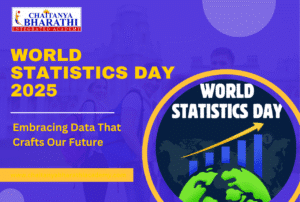Preparing for JEE Mains 2026 without a strategic approach is like sailing without a compass. With thousands of concepts across Physics, Chemistry, and Mathematics, knowing which chapters carry maximum weightage can dramatically improve your preparation efficiency and final score.
Understanding high weightage chapters for JEE Mains 2026 isn’t just about working smarter—it’s about maximizing your return on every hour invested in preparation. Recent analysis of JEE Mains papers from 2020-2025 reveals distinct patterns in chapter-wise mark distribution, and these insights can be your roadmap to success.
According to the National Testing Agency (NTA), which conducts JEE Mains, understanding the exam pattern and syllabus weightage is crucial for effective preparation.
In this comprehensive guide, we’ll break down the high weightage chapters for JEE Mains across all three subjects, helping you prioritize your preparation and target those crucial marks that separate top rankers from the rest.
Understanding JEE Mains 2026 Exam Pattern
Before diving into high weightage chapters, let’s understand the current JEE Mains structure as outlined by NTA’s official JEE Main portal:
- Total Questions: 90 (30 per subject)
- Questions to Attempt: 75 (25 per subject)
- Total Marks: 300 (100 per subject)
- Duration: 3 hours
- Marking Scheme: +4 for correct answers, -1 for incorrect answers
The exam tests your conceptual understanding, problem-solving ability, and application skills across three years of 11th and 12th standard syllabus. Strategic preparation focusing on high weightage chapters can help you secure 70-80% of total marks with focused effort.
Physics High Weightage Chapters for JEE Mains 2026
Physics often intimidates students, but understanding which chapters appear most frequently can transform your preparation strategy. According to Physics World, mastering fundamental concepts is key to success in competitive examinations.
Top Priority Chapters (8-12 marks each)
1. Current Electricity Current Electricity consistently ranks as one of the highest scoring chapters in JEE Mains physics. This chapter typically yields 3-4 questions worth 12-16 marks.
Key Topics to Master:
- Ohm’s Law and electrical resistance
- Kirchhoff’s laws and circuit analysis
- Wheatstone bridge and meter bridge
- Potentiometer applications
- Combination of resistors (series and parallel)
- Heating effects and power dissipation
2. Electrostatics Electrostatics forms the foundation of electromagnetic theory and regularly contributes 10-12 marks in JEE Mains.
Focus Areas:
- Coulomb’s law and electric field calculations
- Gauss’s law and applications
- Electric potential and potential difference
- Capacitors and capacitance
- Dielectrics and their properties
- Energy stored in capacitors
3. Magnetic Effects of Current and Magnetism This combined topic area typically generates 3-4 questions worth 12-16 marks total.
Critical Concepts:
- Biot-Savart law and Ampere’s circuital law
- Magnetic field due to current-carrying conductors
- Force on moving charges in magnetic fields
- Magnetic dipole and Earth’s magnetism
- Bar magnets and magnetic properties of materials
4. Optics Both ray optics and wave optics together contribute approximately 10-12 marks.
Important Sections:
- Reflection and refraction through various surfaces
- Lens formula and lens maker’s equation
- Optical instruments (microscopes, telescopes)
- Wave theory of light
- Interference, diffraction, and polarization
- Young’s double slit experiment
5. Modern Physics Modern Physics has gained significant importance, contributing 8-10 marks consistently.
Key Areas:
- Photoelectric effect and Einstein’s equation
- De Broglie wavelength and matter waves
- Bohr’s atomic model
- Nuclear physics basics
- Radioactivity and decay
- X-rays and their properties
High Priority Chapters (6-8 marks each)
6. Mechanics (Kinematics, Laws of Motion, Work-Energy-Power) While mechanics is vast, focused preparation on problem-solving yields 15-18 marks combined.
Essential Topics:
- Equations of motion and relative velocity
- Newton’s laws and their applications
- Work-energy theorem
- Conservation of energy and momentum
- Circular motion and rotational dynamics
7. Thermodynamics Thermodynamics typically contributes 6-8 marks with straightforward conceptual and numerical questions.
Focus Points:
- Laws of thermodynamics
- Heat engines and refrigerators
- Carnot cycle
- Thermodynamic processes (isothermal, adiabatic, etc.)
8. Simple Harmonic Motion (SHM) and Waves This combination regularly appears with 6-8 marks weightage.
Important Concepts:
- SHM equations and energy
- Spring mass systems and pendulums
- Wave equation and properties
- Sound waves and Doppler effect
Chemistry High Weightage Chapters for JEE Mains 2026
Chemistry is often considered the scoring subject in JEE Mains, with clear-cut concepts and predictable question patterns. The International Union of Pure and Applied Chemistry (IUPAC) provides standardized nomenclature that forms the basis of many JEE Chemistry questions.
Physical Chemistry: Maximum Weightage Chapters
1. Chemical Equilibrium Chemical Equilibrium is the highest weightage chapter in physical chemistry, contributing 8-10 marks.
Must-Know Topics:
- Law of mass action
- Equilibrium constant (Kp, Kc, Kx)
- Le Chatelier’s principle
- Ionic equilibrium in solutions
- pH, pOH, and buffer solutions
- Acid-base titrations
2. Thermodynamics and Thermochemistry Combined weightage of 8-10 marks makes this crucial for physical chemistry.
Core Areas:
- First and second laws of thermodynamics
- Enthalpy, entropy, and Gibbs free energy
- Hess’s law and heat of reactions
- Bond energy calculations
- Spontaneity of reactions
3. Chemical Kinetics Regularly contributes 6-8 marks with both theory and numerical questions.
Important Concepts:
- Rate of reactions and factors affecting it
- Order and molecularity
- Integrated rate equations
- Arrhenius equation
- Collision theory
4. Electrochemistry Electrochemistry yields 6-8 marks consistently with practical applications.
Focus Topics:
- Electrochemical cells and cell potential
- Nernst equation
- Conductance and electrolysis
- Batteries and fuel cells
- Corrosion prevention
Inorganic Chemistry: High Scoring Chapters
5. Coordination Compounds Coordination chemistry typically contributes 6-8 marks with nomenclature and bonding questions.
Key Learning Areas:
- IUPAC nomenclature
- Isomerism in coordination compounds
- Valence bond theory and crystal field theory
- Stability of complexes
- Applications of coordination compounds
6. p-Block Elements The p-block covers vast territory but consistently yields 10-12 marks total.
Priority Topics:
- Group 13-18 elements and their compounds
- Trends in properties
- Oxides, halides, and hydrides
- Industrial applications
- Ammonia, sulfuric acid preparation
7. d and f Block Elements Contributes 6-8 marks with predictable question patterns.
Important Sections:
- General properties of transition elements
- Oxidation states and color
- Magnetic properties
- Important compounds (KMnO₄, K₂Cr₂O₇)
- Lanthanides and actinides basics
Organic Chemistry: Consistent Contributors
8. General Organic Chemistry (GOC) GOC forms the foundation and directly yields 6-8 marks while supporting other organic chapters.
Essential Concepts:
- Electronic effects (inductive, resonance, hyperconjugation)
- Reaction mechanisms (SN1, SN2, E1, E2)
- Carbocation, carbanion, and free radical stability
- Acidity and basicity
- Isomerism
9. Alcohols, Phenols, and Ethers This combination typically contributes 6-8 marks.
Focus Areas:
- Preparation methods
- Physical and chemical properties
- Distinction tests
- Named reactions
- Industrial applications
10. Aldehydes, Ketones, and Carboxylic Acids High importance chapter yielding 8-10 marks combined.
Critical Topics:
- Preparation and properties
- Nucleophilic addition reactions
- Named reactions (Aldol, Cannizzaro, Clemmensen)
- Derivatives of carboxylic acids
Maths High Weightage Chapters for JEE Mains 2026
Mathematics offers the most predictable patterns in JEE Mains, with certain chapters appearing consistently every year. Resources like Khan Academy provide excellent supplementary learning for mathematical concepts.
Maximum Weightage Chapters
1. Calculus (Differentiation and Integration) Calculus dominates JEE Mains mathematics, contributing approximately 30-35% of total marks (30-35 marks).
Differentiation Must-Know Topics:
- Limits and continuity
- Derivatives and applications
- Rolle’s theorem and mean value theorems
- Maxima and minima
- Tangent and normal
Integration Priority Areas:
- Indefinite and definite integration
- Integration by parts and substitution
- Definite integral properties
- Area under curves
- Differential equations (basic)
2. Coordinate Geometry Coordinate geometry consistently yields 15-18 marks across various sub-topics.
High Priority Sections:
- Straight lines and pair of straight lines
- Circles (equation, tangent, normal)
- Parabola (standard equations and properties)
- Ellipse and hyperbola
- 3D geometry basics
3. Algebra Algebra topics collectively contribute 20-25 marks.
Important Chapters:
- Quadratic equations and expressions
- Sequences and series (AP, GP, HP)
- Binomial theorem
- Permutations and combinations
- Probability (basic to moderate level)
- Complex numbers
- Matrices and determinants
4. Vector and 3D Geometry Vector algebra and 3D geometry together yield 10-12 marks.
Focus Topics:
- Vector operations (dot and cross product)
- Scalar triple product
- Plane and line equations in 3D
- Angle between planes and lines
- Distance formulas
5. Trigonometry Trigonometry regularly contributes 8-10 marks with formula-based questions.
Essential Areas:
- Trigonometric identities and equations
- Inverse trigonometric functions
- Height and distance
- Properties of triangles
- Trigonometric ratios
Strategic Preparation Tips for High Weightage Chapters
1. Create a Priority-Based Study Schedule Allocate 60-70% of your preparation time to high weightage chapters. For example, if you study physics for 3 hours daily, dedicate 2 hours to chapters like Current Electricity, Electrostatics, and Modern Physics.
2. Master Concept Before Solving Problems Don’t rush into problem-solving without understanding fundamentals. High weightage chapters appear repeatedly because they test core concepts—ensure your foundation is rock solid.
3. Solve Previous Year Questions Chapter-Wise Analyze the last 10 years of JEE Mains papers focusing specifically on high weightage chapters. This reveals question patterns, difficulty levels, and frequently tested concepts. You can access previous year papers on the NTA official website.
4. Create Formula Sheets and Quick Revision Notes For high weightage chapters, maintain comprehensive formula sheets and concept maps. These become invaluable during last-minute revision before the exam.
5. Take Chapter-Wise Mock Tests After completing each high weightage chapter, take dedicated chapter tests to assess your preparation level and identify weak areas requiring more attention.
6. Interlink Related Chapters Many high weightage chapters connect with each other. For example, understanding Current Electricity helps with Electromagnetism. Building these connections strengthens overall understanding.
7. Don’t Ignore Moderate Weightage Chapters Completely While prioritizing high weightage topics, don’t completely neglect other chapters. Aim for 80% mastery of high weightage chapters and 50-60% coverage of moderate weightage topics.
Common Mistakes to Avoid
1. Neglecting NCERT Many students jump to advanced books without mastering NCERT, especially for Chemistry. NCERT textbooks form the backbone of 40-50% questions in JEE Mains.
2. Only Focusing on Numerical Problems High weightage doesn’t mean only numerical questions. Many chapters include theory-based questions testing conceptual clarity.
3. Skipping Revision Cycles Studying a high weightage chapter once isn’t enough. Plan multiple revision cycles—initial learning, problem-solving practice, and quick revision before exams.
4. Ignoring Time Management Even if you know high weightage chapters well, poor time management during the exam can cost marks. Practice solving questions within time limits.
Monthly Preparation Strategy for JEE Mains 2026
Months 12-10 Before Exam (Foundation Phase)
- Complete high weightage chapters from all three subjects
- Focus on understanding concepts thoroughly
- Solve NCERT and basic level problems
Months 9-6 Before Exam (Practice Phase)
- Solve previous year questions chapter-wise
- Take chapter tests for high weightage topics
- Identify and work on weak areas
- Start integrated revision
Months 5-3 Before Exam (Advanced Practice Phase)
- Take full-length mock tests
- Analyze performance and optimize strategy
- Focus on speed and accuracy
- Quick revision of all high weightage chapters
Months 2-0 Before Exam (Final Revision Phase)
- Daily revision of formulas and concepts
- Solve previous year papers in timed conditions
- Focus on maintaining consistency
- Quick formula revision and doubt clearance
Resources for High Weightage Chapter Preparation
Recommended Books:
- Physics: Concepts of Physics by H.C. Verma, Problems in Physics by I.E. Irodov (selected chapters)
- Chemistry: NCERT XI and XII, Physical Chemistry by O.P. Tandon, Organic Chemistry by Morrison and Boyd
- Mathematics: Cengage Series, Arihant Problem Books, Previous Year Solved Papers
Online Resources:
- Khan Academy for concept clarity and practice problems
- MIT OpenCourseWare for advanced physics and mathematics concepts
- NCERT official portal for textbooks and solutions
At Chaitanya Bharathi Academy, we provide structured guidance specifically focusing on high weightage chapters through:
- Expert faculty with proven track records
- Chapter-wise video lectures and doubt sessions
- Regular testing and performance analysis
- Comprehensive study material targeting JEE Mains patterns
Real Success Stories: The Impact of Strategic Preparation
According to a study by the Ministry of Education, students who focus on high-weightage chapters with structured coaching show 40% better performance compared to those who study randomly.
Many of our students at Chaitanya Bharathi Academy have successfully cracked JEE Mains by following this strategic approach, focusing their energy on chapters that matter most and achieving ranks in the top 10,000.
Conclusion: Your Roadmap to JEE Mains 2026 Success
Focusing on high weightage chapters for JEE Mains 2026 isn’t about taking shortcuts—it’s about strategic preparation that maximizes your score potential. By mastering the chapters outlined in this guide, you can confidently target 70-80% of total marks across Physics, Chemistry, and Mathematics.
Remember, high weightage doesn’t mean easy marks. These chapters require consistent effort, conceptual clarity, and extensive practice. Start your preparation early, maintain discipline, and revise regularly to ensure these high-scoring topics become your strongest areas.
For the latest updates on JEE Mains 2026, including exam dates and pattern changes, regularly check the official NTA JEE Main website.
Ready to ace JEE Mains 2026 with expert guidance? At Chaitanya Bharathi Academy, our experienced faculty specializes in helping students master high weightage chapters through personalized attention and proven teaching methodologies. Explore our JEE coaching programs designed specifically for JEE Mains success.
FAQs:
Q1. What are the Fees of the IIT JEE Coaching Institute in Guwahati?
These fees generally cover classroom sessions, study materials, and periodic tests. Additional costs may apply for online classes or specialized courses.
Q2. Which is the Best Coaching Institute for IIT JEE in Guwahati?
There are some of the best IIT JEE coaching centres in Guwahati such as Chaitanya Bharathi Academy, PW, Allen, etc.
Q3. Do they also provide online facilities for coaching?
Yes, most institutes provide online coaching so that students can make the best use of their time.
Q4. Do they offer scholarships to students for IIT JEE coaching?
Most institutes provide their deserving students with both merit-based and need-based scholarships.
Q. Do these institutes have any special programs for repeaters?
Yes, most of these institutes have special coaching facilities for repeaters in which they have proper care and guidance to improve their scores.











